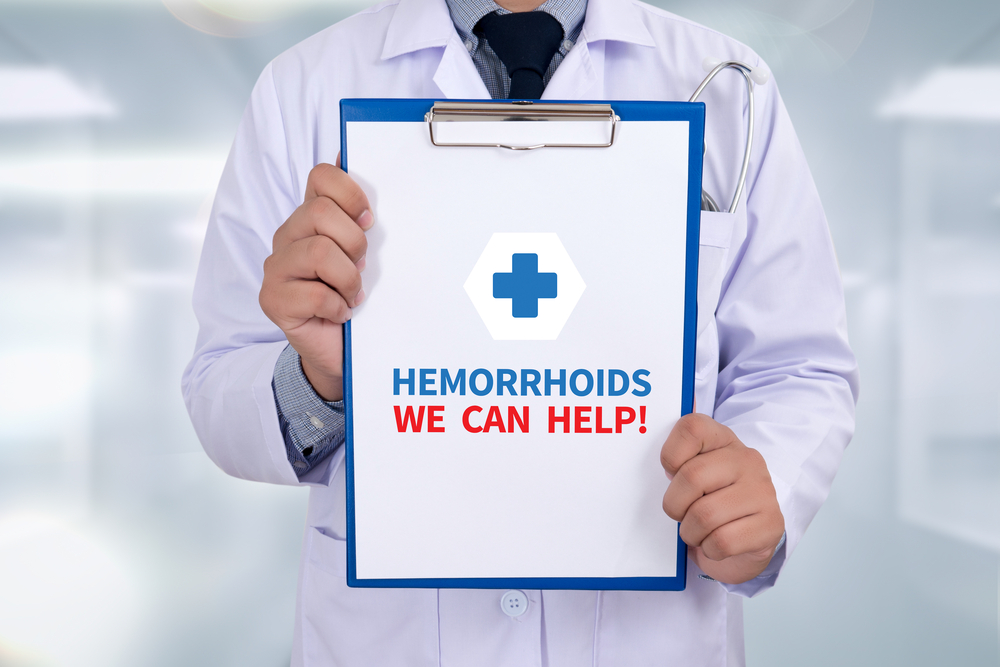An Overview Of Hemorrhoids- Types, Causes, And Symptoms
An overview of hemorrhoids- Types, causes, and symptoms
Hemorrhoids or piles are swollen veins found in the lowest part of the anus and rectum. At times, the walls of the blood vessels are stretched so much that the veins bulge out and get irritated, especially, when they are put under pressure. These swollen hemorrhoids are also called piles. They are most often the cause of rectal bleeding, but they are not dangerous and heal in a few weeks.
Let’s find out more about they types of hemorrhoids, causes, symptoms and more.
What are the different types of hemorrhoids?
Often, the symptoms of hemorrhoids depend on their location.

- Internal hemorrhoids – Internal hemorrhoids are located deep inside the rectum and cannot be seen or felt. They do not cause a lot of pain, as there are very few pain-sensing nerves at this location. However, when passing stools straining or irritation can damage the internal hemorrhoid surface and make it bleed. Sometimes, straining while passing stools can push out the internal hemorrhoid through the opening of the anus. This is called a protruding or a prolapsed hemorrhoid, and it can cause discomfort and pain.
- External hemorrhoids – Located under the skin surrounding the anus, external hemorrhoids can itch and/or bleed when irritated.
What are the causes of hemorrhoids?
When under pressure, the veins around the anus tend to stretch and sometimes swell or bulge. The swollen veins (hemorrhoids) can form from lower rectum being under increased pressure, which could be because of:
- Straining while passing stools
- Sitting for long time on the toilet seat
- Chronic diarrhea
- Chronic constipation
- Obesity
- Pregnancy
- Low-fiber diet
- Anal intercouse
- Aging
What are the symptoms of hemorrhoids?
As mentioned earlier, often times the symptoms of hemorrhoids depend on their location. Some signs and symptoms of hemorrhoids include:
- Painless bleeding while passing stools
- Irritation or itching around the skin of the anus
- Pain and/or discomfort
- Swelling or lumps around the anal region, which is accompanied by sensitivity or pain
How can hemorrhoids be prevented?
Although there are several remedies for getting rid of hemorrhoids, preventing them is preferrable. The ideal way to prevent hemorrhoids is by ensuring that the stools are soft so that they can pass without needing too pressure or strain. In order to ease the symptoms of hemorrhoids and prevent them these habits could be inculcated:
- Eat high-fiber foods – Eating a balanced diet rich in fibrous food aids digestion. Fiber-rich foods ensure the stools are soft and bulky, which can ensure there is little to no pressure and straining required while passing them. Fiber-rich foods include fruits, whole grains, and vegetables.
- Drink fluids – To prevent hemorrhoid it is important to stay hydrated. Everyday drinking six to eight glasses of water and/or other liquids can help in keeping the stool soft. It should be known that these liquids do not include alcohol.
- Exercise – The benefits of exercising regularly are many. To prevent constipation and reduce the pressure on veins that are caused by standing or sitting for long hours it is important to stay active. Additionally, exercising helps in losing excess weight, which could be a contributing factor to the development of hemorrhoids. While exercising, weight-lifting should be done under the guidance of an instructor as too heavy weights can lead to pressure on the lower body.
- Laxatives – Opt for osmotic laxatives, which increase the water in the body and relieve constipation. It should be known that using laxatives should be done in consultation with a doctor, as they can stimulate intestinal contraction in order to move the stools. This could increase the pressure on the hemorrhoids and make them worse.
- Avoid straining – While passing stool it is best to not strain or hold breath as it can add pressure on the veins in the rectum and cause bleeding.

